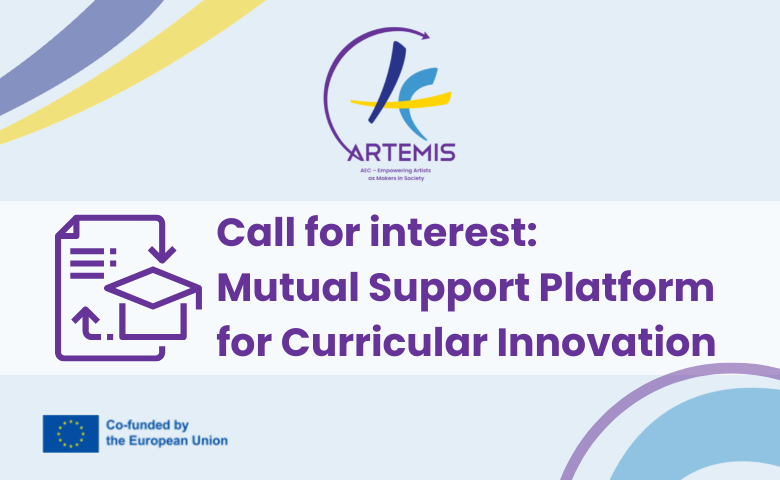Is your institution planning or undertaking a change in the curriculum? Join one of our clusters to exchange ideas with colleagues and support each other.
In the framework of the ARTEMIS project, AEC invites its member institutions (active and associate) to join clusters of institutions undertaking curricular changes.
One of the tasks of the Capacity Building Working Group of the ARTEMIS project is to encourage and assist institutions to design and implement changes that they would like to introduce in their curricula – including, for example, increased flexibility and options; innovative offers that better prepare students for diverse careers; work-based learning; all the way to a complete re-think of the current curriculum.
For this purpose, clusters of 5 or 6 institutions will serve as a Mutual Support Platform for Curricular Innovation. These institutions will work together through a process including reflection, exchange and mutual support.
It will take the form of meetings (mainly online) with a representative of each institution in the cluster. This representative could be anyone closely connected to the change process: a teacher, a member of staff, a coordinator, a student representative… This will contribute to the inclusion of different perspectives in the meetings and discussions.
The process will be facilitated by experts with experience in curricular reform processes. These may be members of the Capacity Building WG and/or external experts.
The main objective is to provide AEC member institutions with support from peers and experts towards the achievement of their goals in terms of curriculum changes. The work and process will be defined by the cluster participants themselves depending on their plans and needs, and will therefore connect to the work developed by each institution.






